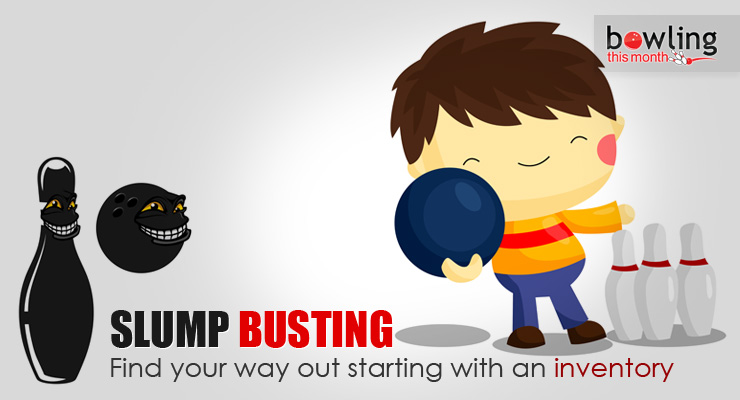Article Contents
- 1. How did this happen?
- 2. You haven’t lost it
- 3. Let the healing begin
- 4. Step 1
- 5. Step 2
- 6. Step 3
- 7. Step 4
- 8. Step 5
- 9. Change your stars
Note: This article is only available to Bowling This Month subscribers.
“When you’re in a slump, you’re not in for much fun. Un-slumping yourself is not easily done.”
—Dr. Seuss
Virtually every player who has taken on the rigors of competition bowling has had dark periods where their game goes stale. Perhaps you feel stuck in terms of personal improvement. Maybe you just can’t seem to win. The energy and excitement associated with competing are let out of the balloon and you may not feel like going out to get beat up again.
Sound familiar? If you have been at this game for a while you have probably had some version of this. Something has to change, but for the life of you, you may not have any plan other than to plow through until the sun starts shining on your game again.
Waiting for a shift in the bowling weather might work, yet it is an extraordinarily passive approach to changing one’s life. This month we are going to address the phenomenon called “slumping.” There is no reason to wait for one’s fortunes to change when you can actually control your future.
How did this happen?
“Losing streaks are funny. If you lose at the beginning, you got off to a bad start. If you lose in the middle of the season, you’re in a slump. If you lose at the end, you’re choking.”
—Gene Mauch
A slump is a trend of events that gets noticed by an athlete. That trend then gets infused with negative meaning. Whether it is mental, emotional, or competition results, bowlers tend to see patterns and develop belief systems about them. Here are three typical scenarios:
- You miss the cut in two or three tournaments in a row.
- You don’t feel connected to your swing for a week or more.
- You have lost your zest for the game for one or more weeks.
Other markers are strings of missed spares, inability ...
Already a premium member? Click here to log in.


